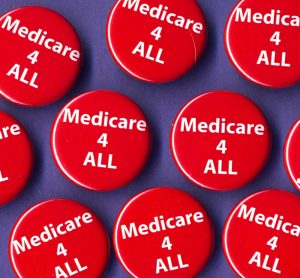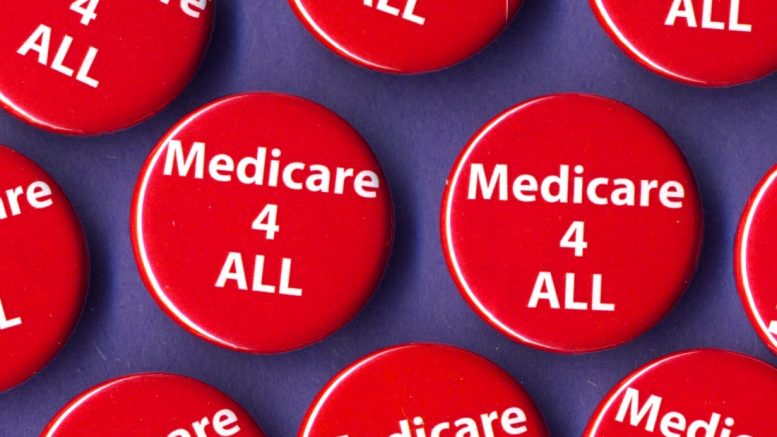
By Adam Gaffney
The Guardian (12/11/18)
If you can’t undercut a popular proposal as undesirable, make it sound impossible. That, in any event, has been the tack of opponents of single-payer healthcare, also called improved “Medicare-for-all”.
“[W]e got to get away from these falsehoods and start talking about the truth …” opined billionaire Starbucks CEO Howard Schultz on CNBC last June, while contending that single-payer healthcare was economically infeasible. “I think a lot of the analysis has shown it’s unaffordable,” claimed Seema Verma, head of the Centers for Medicare & Medicaid Services, last summer, quoted by Kaiser Health News.
The real stumbling block is not that single-payer advocates’ arithmetic is poor, it’s that American politics are dominated by the rich.
Yet casting Medicare-for-all as an economic impossibility is becoming a sisyphean pursuit: a slew of studies – including one released just the other week – are confirming that, yes, we can afford real universal healthcare in America. But if that’s the case, why haven’t we already achieved it? Well, the real stumbling block is not that single-payer advocates’ arithmetic is poor, it’s that American politics are dominated by the rich.
Still, the numbers matter. On 30 November, a team of economists with the Political Economy Research Institute (Peri) at the University of Amherst published a highly credible, nearly 200-page economic analysis of Senator Bernie Sanders’ single-payer bill. The Peri study received essentially none of the media coverage lathered on the last such analysis – a flawed piece of work published by the conservative Mercatus Center last summer. But here’s the funny thing: though these two analyses came from economists from opposite ends of the political spectrum, they shared a similar finding: single-payer would reduce our nation’s healthcare spending bill by trillions of dollars over a decade (around $2tn and $5tn, respectively).
Billions in potential savings
The numbers are big, but they shouldn’t come as a surprise. Yes, single-payer imposes some new costs: when people don’t have to worry about ruinous medical bills or ravenous debt collectors, they tend to use more healthcare, increasing costs. But such rises in utilization are likely to be modest (even more modest than these analyses predict). There are only so many doctors and hospital beds, which limits theorized surges in utilization. Anyway, there are hundreds of billions in potential savings in moving to single-payer, such as slimming down on the massive administrative bloat of the privatized American healthcare system and bringing down our sky-high drug prices. …
(Commoner Call photo open source and free for non-derivative use with link toe www.thecommonercall.org )

